The race to net zero: which countries are getting there quickest?
The countries winning the race to net zero, and the ones falling behind

The international climate change conference, COP29, has produced a $300 billion (£238bn) deal to help poorer countries fight global warming – the latest stage toward implementing the landmark Paris Agreement.
Adopted by 193 UN states along with other non-state entities when it was unveiled in 2015, the Agreement aims to limit the average global temperature increase to 1.5°C above pre-industrial levels. It’s a binding international treaty, but its signatories’ progress toward fulfilling the obligations varies enormously.
So, how is your country performing? Read on to discover the progress 32 key nations are making in reaching their carbon-neutral goals today, with ratings based on insights from the Climate Change Performance Index (CCPI).
All dollar amounts in US dollars.
How countries are scored
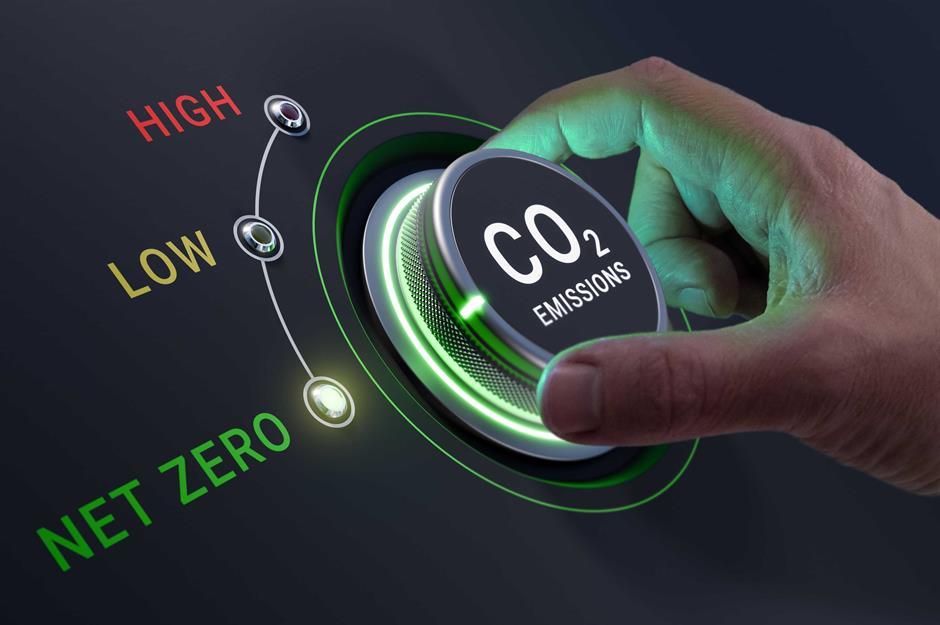
The CCPI evaluates 63 countries plus the European Union, which together generate over 90% of global greenhouse gas emissions. Its experts assess four categories: a country’s reduction in greenhouse gas emissions makes up 40% of the score, while renewable energy, energy use, and climate policy each make up 20%.
In each case, the experts make demands that they think will help the country achieve the Paris Agreement targets. Based on current climate action, they award each country a rating of Very Low, Low, Medium, High and Very High.
Without further ado, let’s see how well – or how badly – a selection of the countries in the Index are performing, ranked from worst to best...
Saudi Arabia: CCPI rating 18.2 (Very Low)
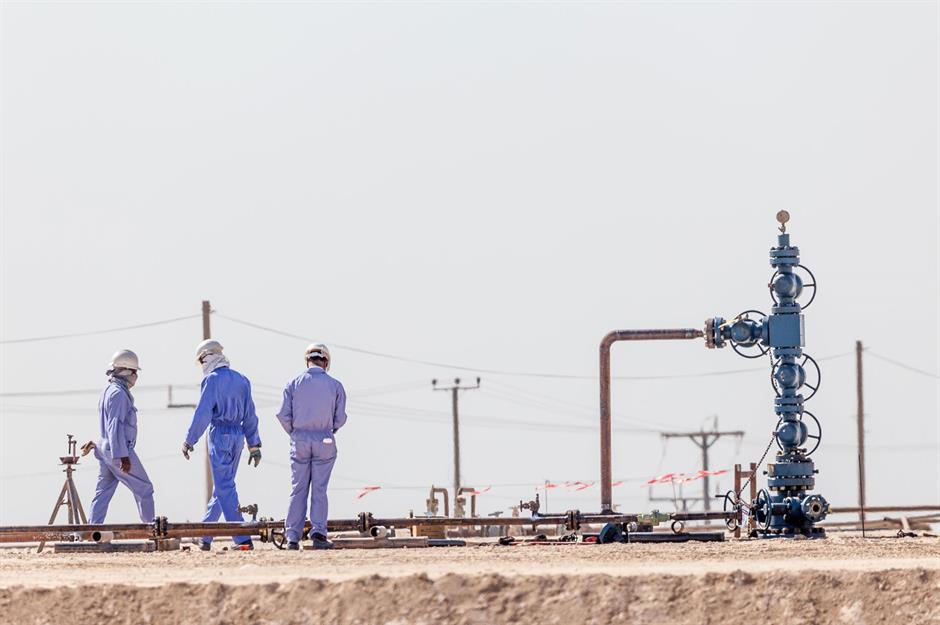
As one of the world's leading producers and exporters of oil and natural gas, Saudi Arabia has the highest per capita greenhouse gas emissions among the G20. Its progress toward reducing them falls way short of being compatible with Paris Agreement goals, so CCPI has rated it Very Low for its Emissions, Energy Use and Renewable Energy performance, whilst its Climate Policy is rated Low.
The Kingdom does have ambitious plans to diversify its economy by 2030. For now, though, it remains heavily reliant on fossil fuels – and second-to-last in the CCPI index.
Sponsored Content
UAE: CCPI rating 19.5 (Very Low)
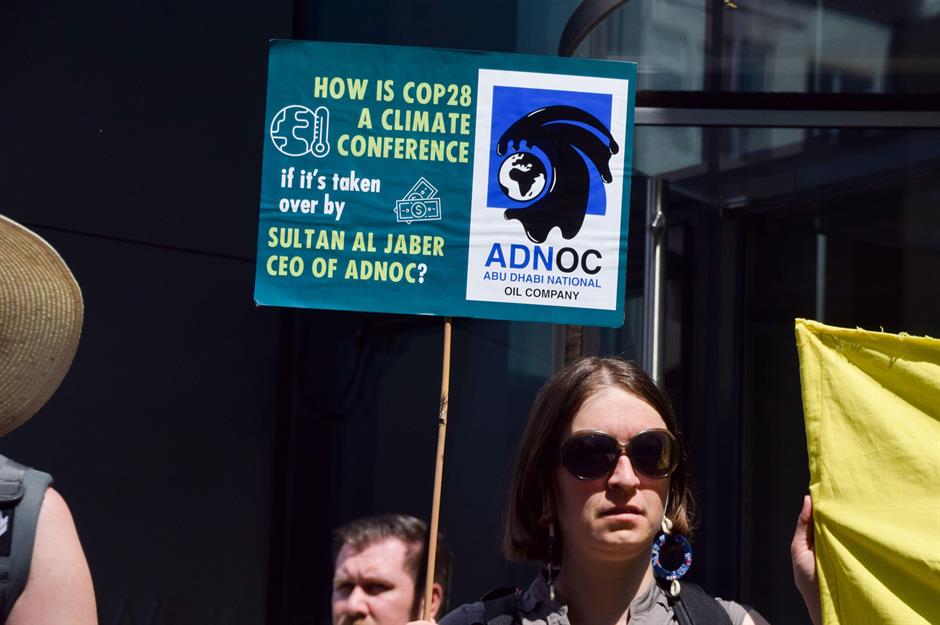
Saudi Arabia’s desert neighbour, the United Arab Emirates (UAE), chalks up a Very Low overall performance too, with a numerical score of 19.5. That’s despite it being the host of the COP28 international gathering in 2023 (pictured). The CCPI says the country demonstrated goodwill at the time and announced large renewable energy projects, but has said virtually nothing since then.
The Emirates is another leading oil exporter and it's actually planning to expand its production, which critics say severely undermines its plan to reach net zero by 2050. In one small consolation for environmentalists, the CCPI notes that Emirati industry appears increasingly aware that decarbonisation is necessary.
Russia: CCPI rating 23.5 (Very Low)

Russia has pledged to reach net zero by 2060, although it's not doing much to achieve this. There are no targets to reduce fossil fuels or increase cleaner energy. The CCPI has placed it 64th out of the 67 countries ranked in the index – one place lower than last year.
Only 5% of Russia’s energy comes from renewable sources, and its Energy Strategy to 2035 focuses almost entirely on fossil fuels. Meanwhile, Russia's invasion of Ukraine has reportedly yielded a carbon footprint equivalent to the entire emissions of Belgium.
However, one silver lining was highlighted in a recent report from the International Energy Agency (IEA). The war in Ukraine has helped to hasten the world's transition to net zero, with Western countries increasingly turning to renewables to replace Russian oil and natural gas.
Canada: CCPI rating 28.4 (Very Low)
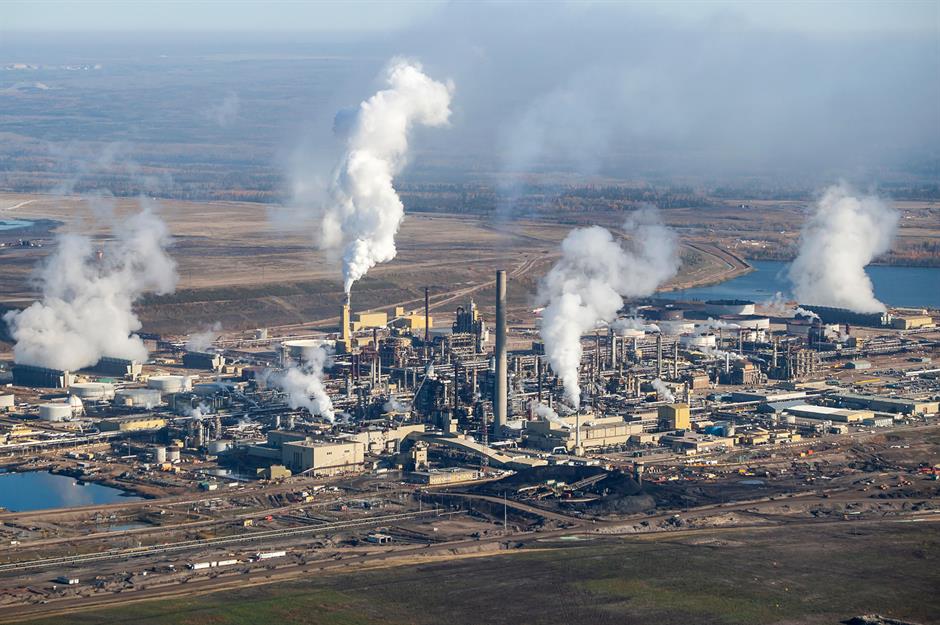
The Canadian government may talk the talk, but when it comes to concrete action on climate change, it leaves much to be desired. Just as in 2023, the CCPI ranks it at 62nd place and gives it a Very Low rating in the GHG Emissions, Renewable Energy, and Energy Use categories. Climate Policy is rated as Low.
Although it introduced a carbon price system, most of the emissions from oil and gas producers are exempt, so on average, they pay a low price. What's more, Canada is planning to increase its oil and gas production in the next five years. It’s already the world’s fourth largest oil producer, which CCPI says is incompatible with the Paris Agreement targets.
Sponsored Content
Argentina. CCPI rating: 36.0 (Very Low)

The CCPI experts are definitely unhappy with Argentina. They’ve downgraded its ranking this year by six places, making it 59th in the table. Greenhouse Emissions, Renewable Energy and Climate Policy all score a Very Low rating. Meanwhile, Energy Use manages only a Medium. In fact, the CCPI has dubbed the country a ‘loser’ in this year’s index.
The problem is the recently elected government of self-styled anarcho-capitalist Javier Milei, which is sceptical about manmade climate change. While some municipal and regional authorities have introduced climate-friendly policies, the federal government has not, and in some areas, things have even regressed, according to the authors.
They call upon Buenos Aires to “take climate change seriously” in the years ahead, saying its actions are not in keeping with the Paris Agreement.
Japan: CCPI rating 39.2 (Very Low)

Japan is striving to get to net zero by 2050 and achieve a 46% emissions reduction on 2013 levels by 2030. Despite this, it's received a Very Low rating of just 39.2 in the CCPI, which criticises it for using loopholes to avoid full implementation of international agreements.
The authors say Japan is not doing enough to build renewable energy infrastructure and disapprove of it counting biomass as a clean power source. But even worse are its efforts to phase out fossil fuels, which they describe as inadequate. It’s now the only G7 nation with no clear date for this, and it continues to rely on coal for nearly one-third of its electricity generation.
Japan is 58th in the CCPI rankings.
USA: CCPI rating 40.6 (Very Low)

In 57th place in the CCPI rankings with a score of 40.6, the United States achieves a Very Low rating for its Greenhouse Emissions, Energy Use, and Renewable Energy, while the Climate Policy part of the equation scrapes a Moderate verdict.
The CCPI experts laud President Biden’s so-called Inflation Reduction Act which has awarded massive public subsidies to help expand wind and solar capacity. They note that biofuel production is up, now accounting for 5% of US energy needs. But they say plans to grow oil and gas extraction need to stop. In fact, drilling should be banned, even on private land.
Forthcoming political changes do not augur well for these demands. Donald Trump will take the White House in January, and he’s an avowed climate sceptic.
Sponsored Content
China: CCPI rating 44.2 (Very Low)
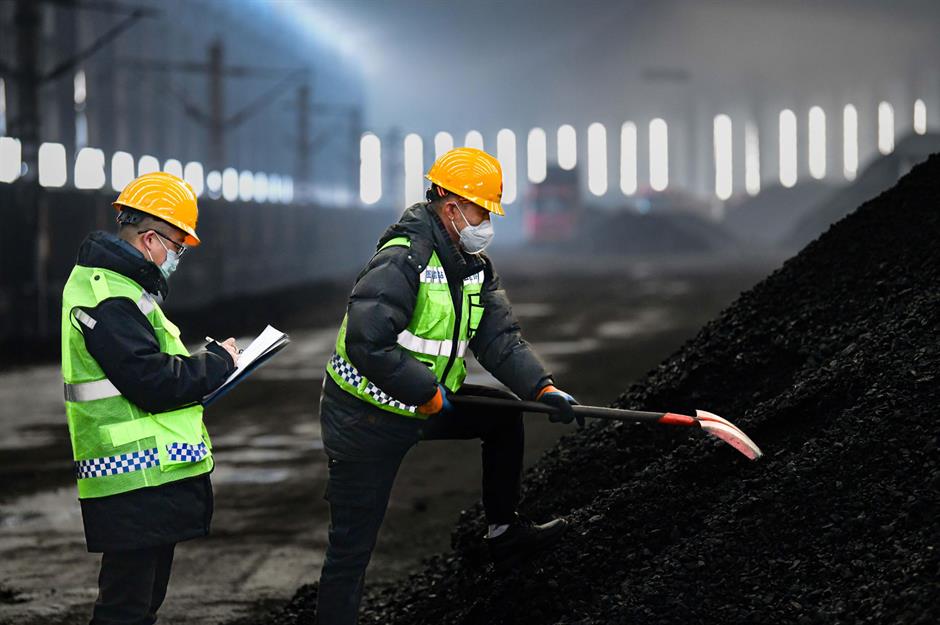
Another Very Low performer, China has dropped four places in the CCPI rankings to 55th place. That’s despite the possibility that its emissions may have peaked this year – over half a decade earlier than planned.
The People’s Republic wins approval for its focus on solar cells, lithium batteries and electric vehicles, but coal and gas continue to expand at the same time, making for ambiguous policy. China is among 10 countries with the largest developed coal oil and gas reserves.
If things are to improve, Beijing must make its emissions reduction plans more coherent, strengthen its national carbon trading markets, and be more ambitious overall, say the experts.
Australia: CCPI rating 45.5 (Low)
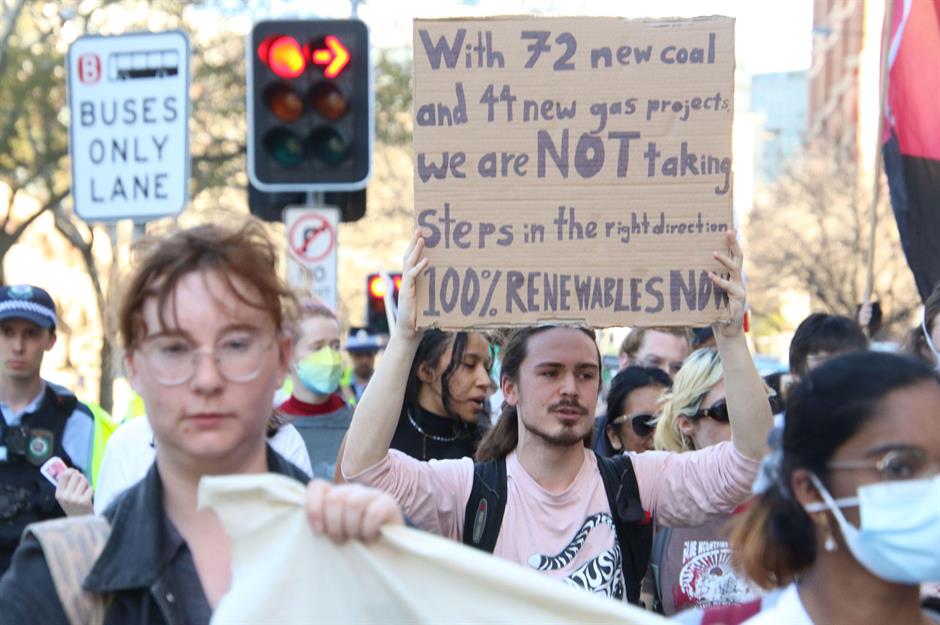
In 52nd place, Australia begins the list of countries that are merely Low as opposed to Very Low (which is the category it was in last year, signalling modest improvement). The country has become more open to tackling climate change since 2022, when it elected the Labor government of Anthony Albanese, but that doesn’t get it off the hook.
Albanese has introduced more ambitious emission reduction targets, paving the way for carbon neutrality by 2050. CCPI notes that Australia is “nearly on track” to achieve emissions reduction targets.
Even so, some major fossil fuel subsidies remain, along with plans to increase coal mining, which does not satisfy the experts. They’re unhappy with the government’s international engagement too, and call upon it to give more money to multilateral climate funds, amongst other things.
Malaysia: CCPI rating 47.6 (Low)
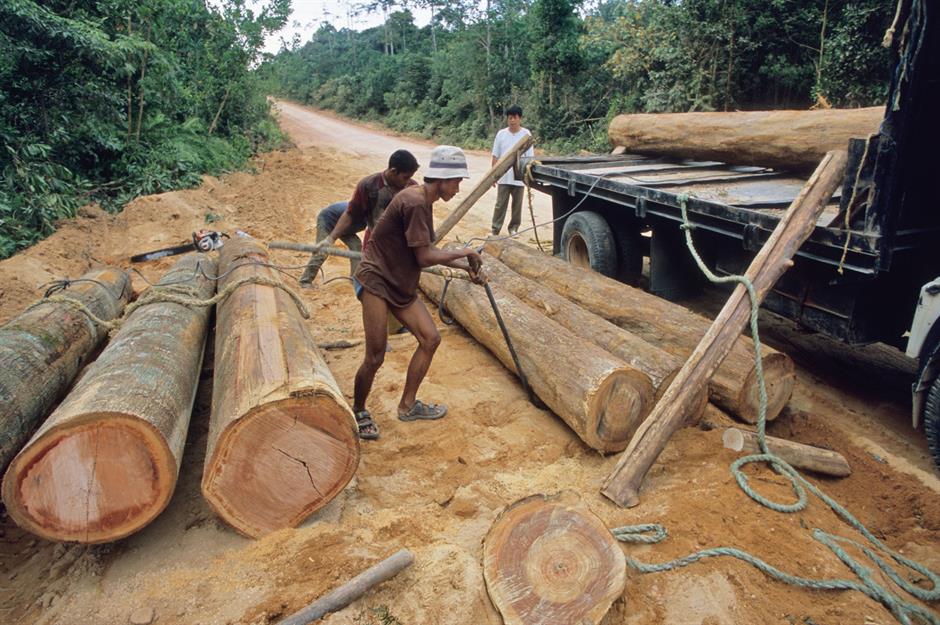
Malaysia has climbed 11 places to number 48 in the CCPI ranking. Nevertheless, with a score of 47.6 it’s rated Low and has a long way to go if it plans to reach its goal of carbon neutrality by 2050.
The experts note a plan to reduce coal use by 50% within 10 years and phase it out entirely by 2044. But they add there’s been too little public consultation on the roadmap for implementing the Paris commitments. Meanwhile, new oil and gas exploration goes on, which could result in longer reliance on these fuels. Some groups in Malaysia receive petrol subsidies.
Even the renewables sector comes in for some criticism, with large-scale solar projects sometimes resulting in violations of Indigenous people’s human rights. And deforestation is also a serious problem, especially on land controlled by state governments rather than the federal authority.
Sponsored Content
Indonesia: CCPI rating 50.8 (Low)
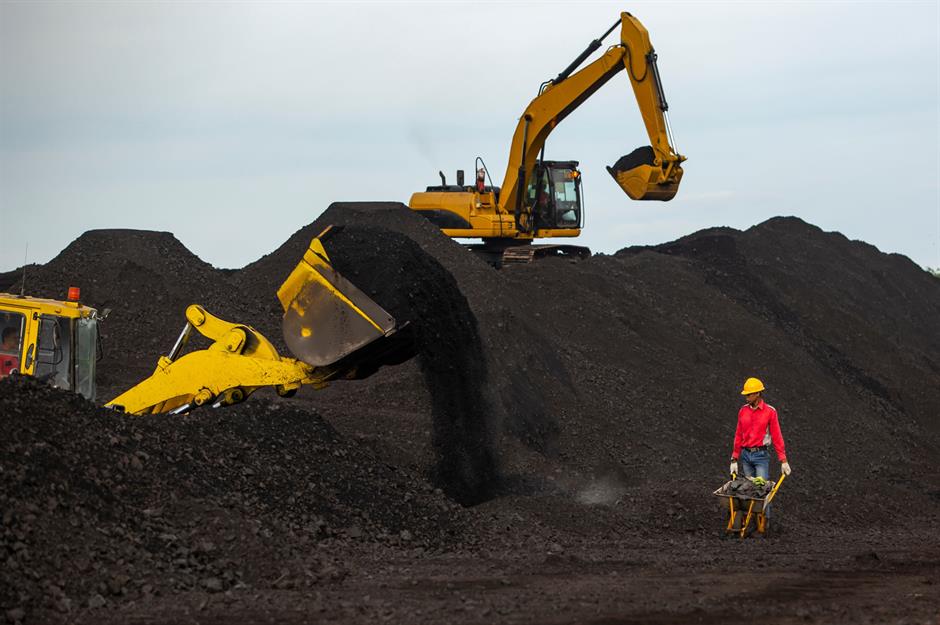
Since last year, Indonesia has fallen six places in the CCPI rankings with a score of 50.8 and a Low rating. Now in 42nd place, it’s failing to exploit its potential for renewables, which make up just 13% of its energy mix. Coal remains the number one source of electricity, though a phaseout is planned by 2050-60, and no new coal power plants will now be approved.
There’s a new president and government in Jakarta, and it supports biomass as an alternative energy source. However, the experts are unsure if this is useful for tackling climate change, and they have concerns over the deforestation it entails. They’re also unhappy with plans to increase gas production.
Overall, Indonesia needs to increase its climate ambitions, says the CCPI, if it's to stand any chance of reaching net zero by its target date of 2060.
New Zealand: CCPI rating 51.1 (Low)
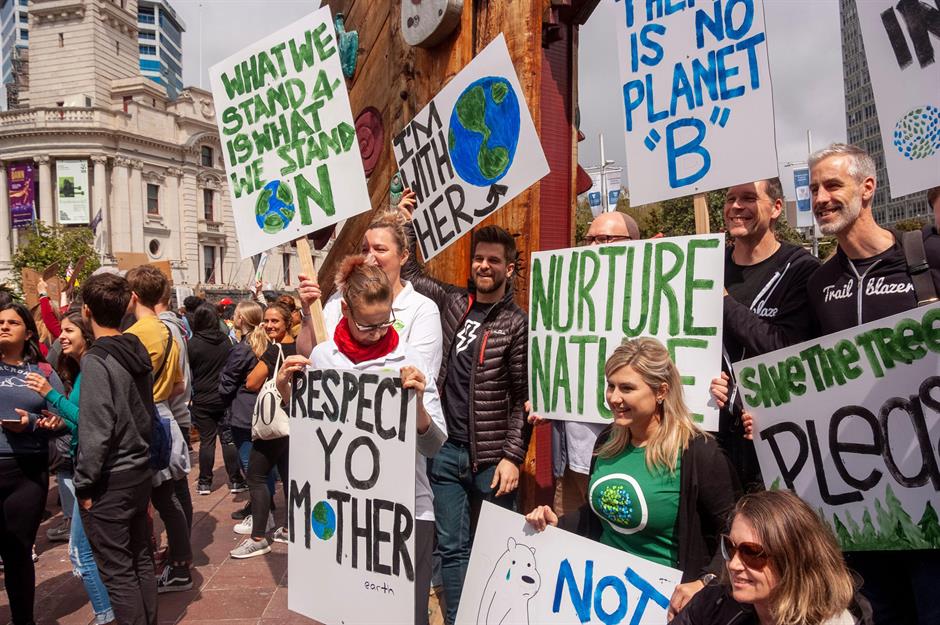
New Zealand elected a new government in 2023, and its climate policy comes in for strong criticism from the CCPI experts, who award the country a Low 51.1 score and relegate it seven places to 41st in the rankings.
Its plans for reducing emissions rely heavily on offsetting rather than real reductions, but half of greenhouse gases come from its large agricultural sector, and this lies outside the scope of its emissions trading system, at least until 2030. In any case, methane emissions are not included in the net zero target of the country’s climate change law. And while over 80% of New Zealand’s energy is renewable, that’s only because of historic hydroelectric schemes rather than new capacity, so it fails to win favour there either.
Worse, the new government is proposing to fast-track liquefied natural gas (LNG) facilities, lift a ban on offshore oil and gas drilling, and allow the development of new coal mines. Overall, it’s unclear if New Zealand can meet its 2050 net zero target, says the CCPI.
Mexico: CCPI rating 52.7 (Low)
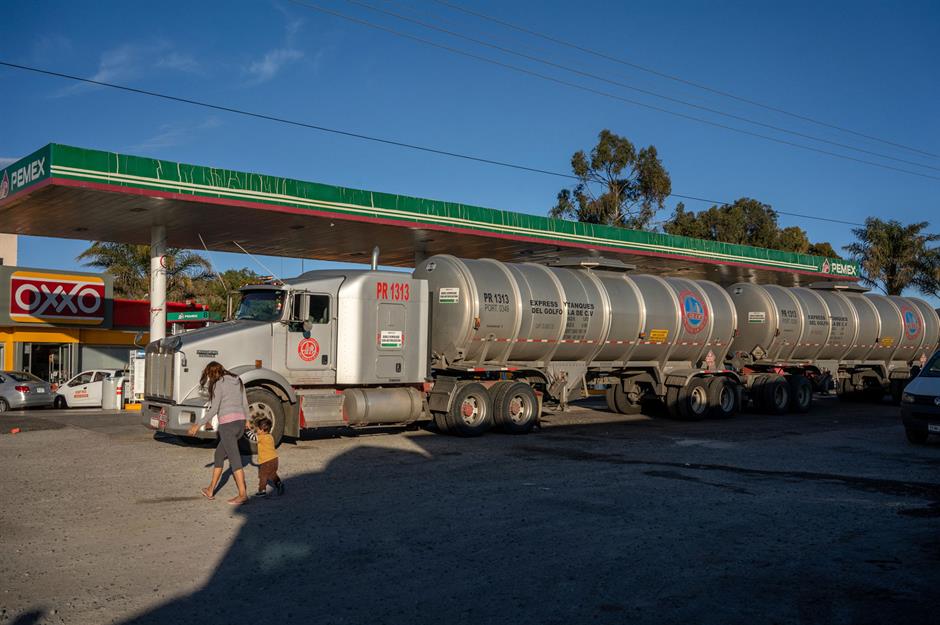
Another country under new leadership, Mexico now has the climate scientist Claudia Sheinbaum for president, and the CCPI hopes this will bring it into line with its Paris Agreement commitments. So far, though, it’s not done enough and only earned a score of 52.7, which leaves it in the Low category.
The new president will have her work cut out: A moratorium on shale extraction is the only outlier in an otherwise supportive environment for fossil fuels, which includes a new oil refinery and gas pipelines. And there are plans to increase oil production.
To advance, the CCPI says Mexico needs a far more ambitious renewables plan, a clearer pathway to meeting the Paris Agreement, and a promise to achieve net zero by 2060. It's currently the only G20 nation that hasn't made that commitment.
Sponsored Content
South Africa: CCPI rating 52.7 (Low)
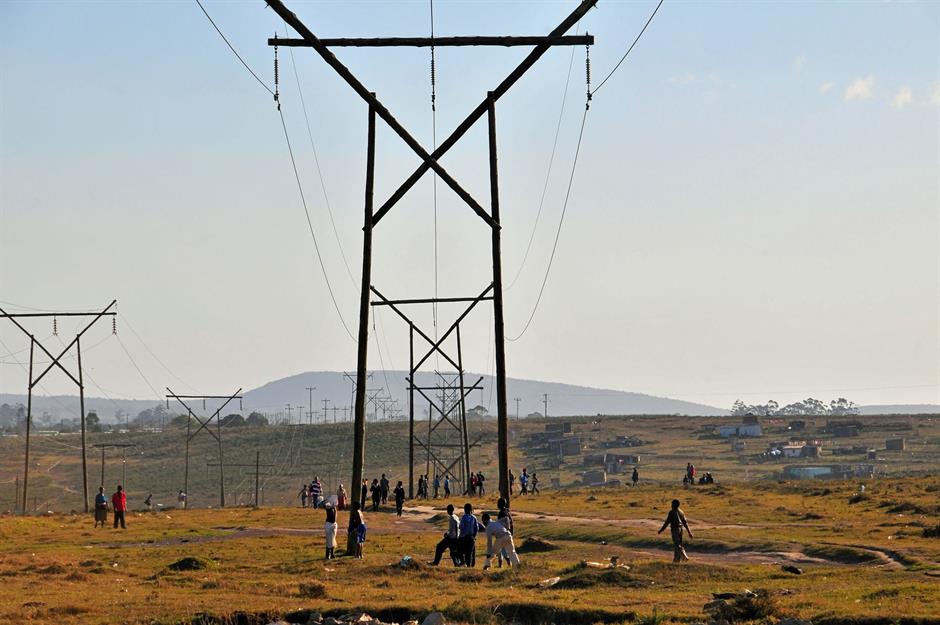
South Africa has climbed seven places to the number 38 spot with a score of 52.7 and a Low rating, though its renewable energy use is deemed Very Low, reflecting the country’s long-term dependence on coal. South Africa is one of 10 countries with the largest known coal reserves. This, says the CCPI, is not compatible with keeping global temperature rises to 1.5°C.
The rise in ranking is in part because of the country’s first ever climate change bill which legislators passed in July 2024. The new law sets limits for major carbon emitters and calls upon cities to publish their local adaptation plans. Some progress for Africa’s top greenhouse gas emitter, but South Africa still has many challenges ahead.
Switzerland: CCPI rating 56.1 (Medium)

In 2023, the Swiss electorate backed the Climate and Innovation Act, which enshrines drastic carbon emissions cuts by 2050 into law. So you might expect their country to be climbing the CCPI rankings. However, it only manages a Medium rating off the back of a hefty 12-place fall, making 33rd place this year. The CCPI says that Climate Policy is to blame.
The experts are unhappy that the Alpine nation’s plan for implementing the Paris accord relies heavily on influencing countries overseas to reduce their emissions, rather than focussing on reductions at home. They add that Swiss financial institutions bankroll fossil fuel production, even though there’s none in their own country, and call on the government to introduce rules to stop this.
What’s more, Switzerland needs to give more money to global climate funds, as it currently pays just 60% of its “fair share”. Finally, the government is only planning to achieve a 34% reduction in 1990 levels of carbon emission by 2030. The CCPI says this isn’t good enough.
Ireland: CCPI rating 57.2 (Medium)

From a hefty fall for the Swiss to a meteoric rise for the Irish, who climb 14 places into Medium territory with an overall ranking of 29th place. That said, there’s plenty that attracts criticism.
The experts laud Ireland’s legally binding five-year carbon budgets, introduced in 2022, but say it’s unlikely to meet the target for the next one, which will cover 2026-30. They say that, despite a doubling of solar capacity, Ireland is set to continue its dependence on fossil fuel for electricity generation and have called on the country to permanently ban any new LNG terminals and limit nitrogen use in agriculture.
Noting that data centres now take up 20% of Ireland’s electricity, the experts add that a moratorium on future developments is needed. And although Dublin has contributed large sums of money to international climate funds, the overall amount is still lower than necessary.
Sponsored Content
Brazil: CCPI rating 57.3 (Medium)
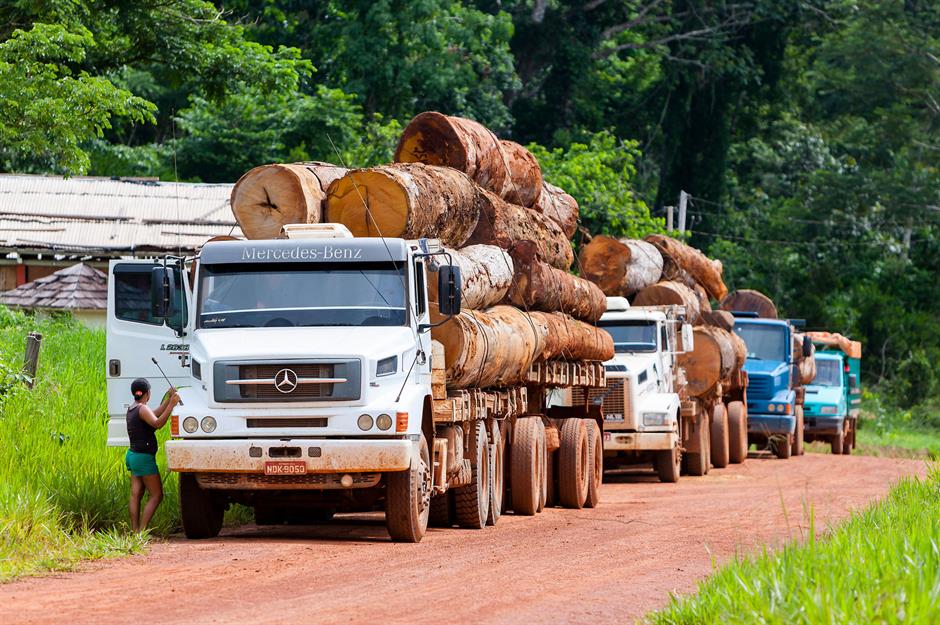
The CCPI experts say the re-election of Leftist president Luiz Inácio Lula da Silva in January 2023 has improved Brazil’s climate policy. Although they have demoted it a few places from 23rd to 28th in the rankings this year, they have given it a Medium rating as they did in the last index.
The Brazilian government is currently preparing its next plans for implementing the Paris accord, and it already has some progress to its name. The experts say it’s shown strong action on Amazon deforestation, which has reduced, while renewable output has nearly doubled. However, the country remains reliant on fossil fuels. There will be coal subsidies until 2040 amid plans to increase the nation's oil and gas production.
Phasing out fossil fuels entirely, and more effective laws against pesticides, are among the measures the CCPI wants Brazil to pursue.
Colombia: CCPI rating 57.5 (Medium)
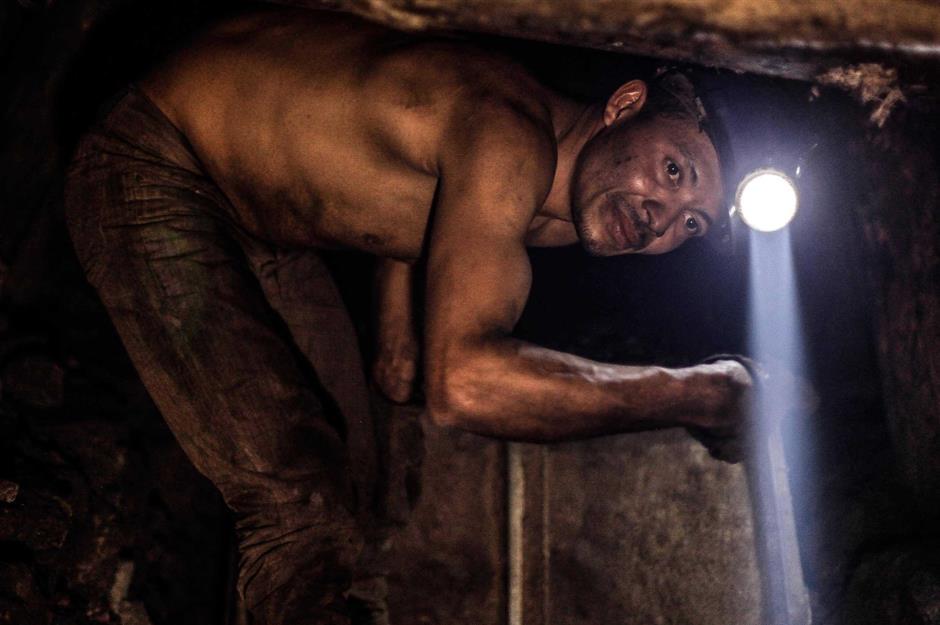
Climbing four places to the 27th spot is Colombia, with a score of 57.5 and an overall ranking of Medium. The South American country plans to achieve a 51% reduction in carbon emissions by 2030 and aims to be at net zero by 2050. It’s expected to update its plan in the near future and also supports efforts to protect the Amazon rainforest.
The CCPI experts appear relatively pleased with progress. However, they point out that Colombia also has one of the world’s top 10 biggest coal reserves and plans to increase production. They’re calling on the nation to spend more money on increasing renewable energy and develop a clear plan for phasing out fossil fuels.
France: CCPI rating 59.2 (Medium)
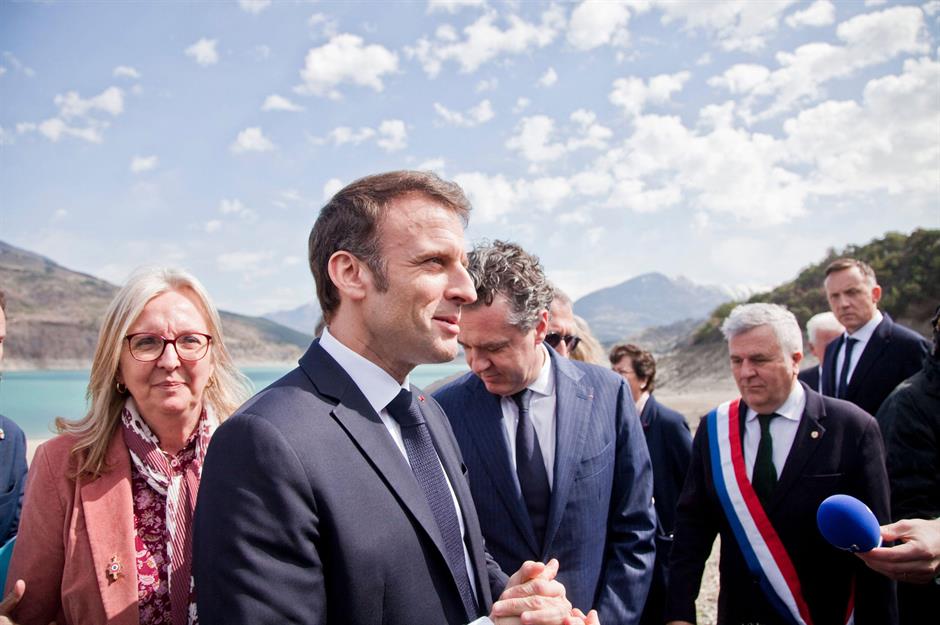
The French president Emmanuel Macron has introduced a 50-point ecological plan that promises to increase renewables by 2030, along with reducing carbon emissions by 55% compared to 1990 levels. This has paid dividends in the latest CCPI, resulting in a 12-spot leap in the rankings to 25th place.
Not everything is going well though. The CCPI experts say France is not on track to reach its new goals, and they note that the phasing out of coal power plants has been pushed back to 2027. Renewables expansion is lagging, they say, and there needs to be transformation of the agricultural sector to achieve carbon storage and biodiversity requirements.
The mixed picture is reflected in the category breakdown ratings, where France scores a Medium for Greenhouse Gas Emissions and Energy Use, but a Low for Renewable Energy and Climate Policy.
Sponsored Content
Austria: CCPI rating 59.4 (Medium)
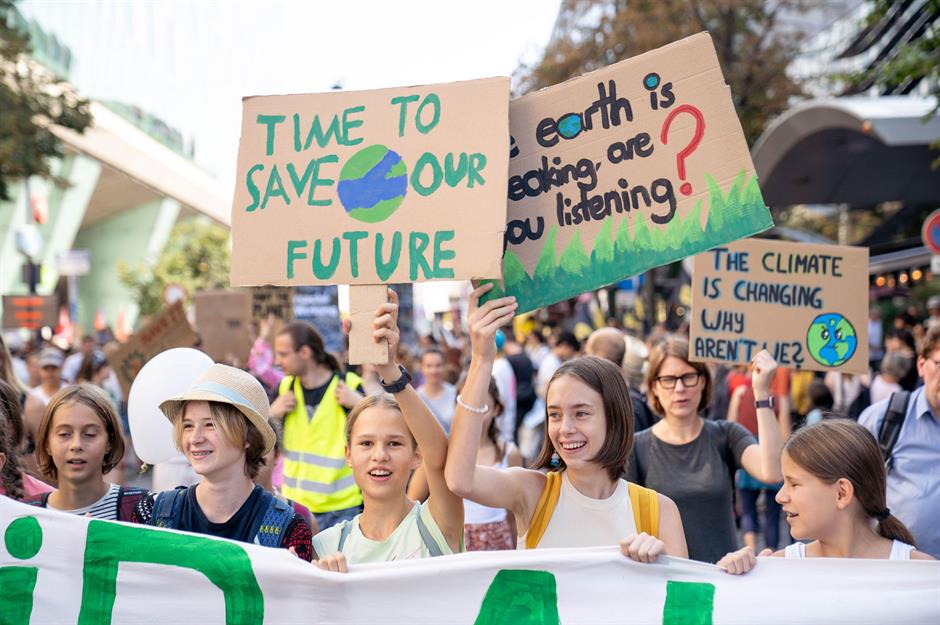
Austria’s up nine places to 23rd spot this year, but still only musters a Medium rating from the CCPI.
Their experts acknowledge its subsidies for changing heating systems in buildings, electric vehicles and public transport improvements. They also approve of a ban on installing gas heating in new buildings. But they want it to go further. The next step should be a phase out of gas and oil heating in old buildings too, they say. And they are critical of Austria’s lack of a binding date for phasing out fossil fuels more generally.
Austria has a new government after elections in 2024, and the experts are concerned that it might reverse some of the climate policies it has inherited.
Spain: CCPI rating 61.6 (Medium)
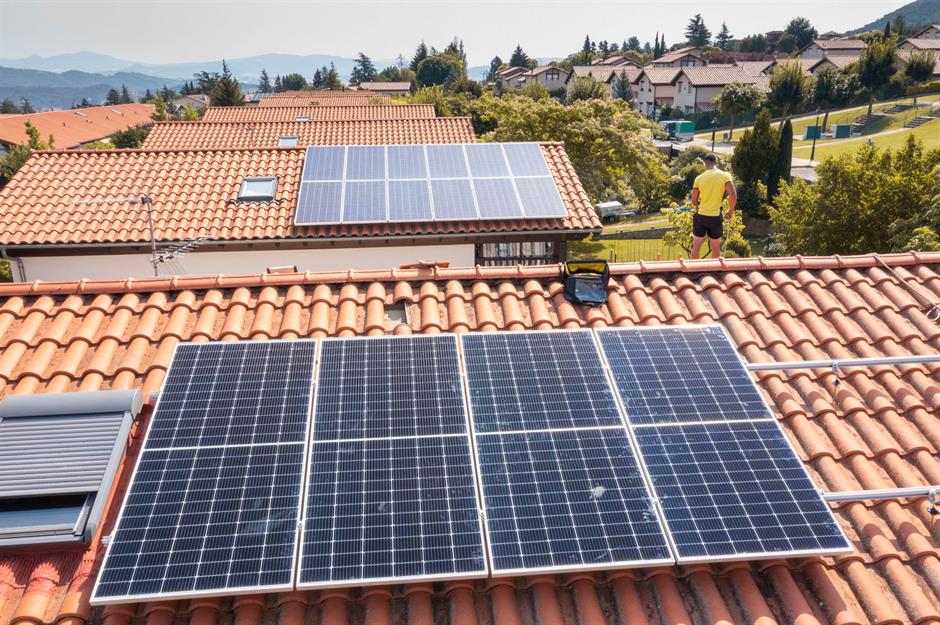
After the 2023 election in which the socialist prime minister Pedro Sanchez clung onto power, CCPI says Spain has increased its climate action. It’s placed the country in 19th place with a Medium rating in all four sub-categories. It scores 61.6 and lies just below the average for the EU’s 27 member states.
Madrid has a 2050 net zero date, and it’s introduced an energy and climate plan that aims to cut emissions in the meantime, with a goal of 32% reductions by 2030. That’s far more than its previous 23% target. However, it's not enough; to limit global temperature rises to 1.5°C, the experts say a 55% reduction is necessary.
They laud Spain for its significant growth in renewables like solar, wind and hydropower, which this year accounted for over half of all electricity generation. But gas is expanding too, something they say needs to stop.
Germany: CCPI rating 64.9 (Medium)
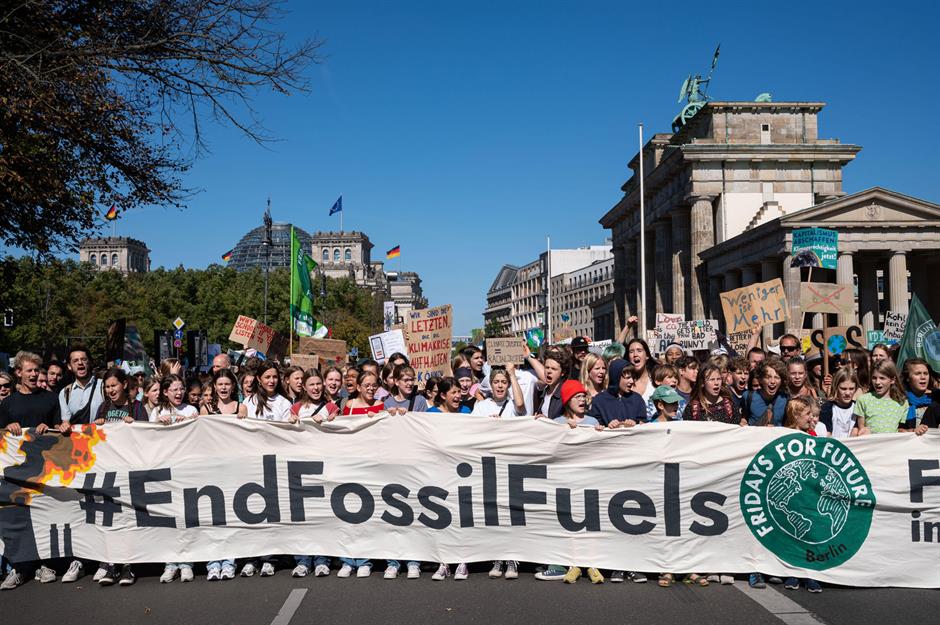
Just above the EU average and with a score of 64.9, Germany is ranked in 16th place, dropping two places from last year and with a Medium performance score. Last year, it was deemed High. The CCPI say that, overall, the nation is at least projected to approach its 2030 emissions targets. However, all is not as it might seem…
Germany’s energy sector has made progress with increased renewables usage, thanks to a new law and less red tape. In industry though, emissions have reduced only because of economic downturn rather than deliberate policy. What’s more, budgetary constraints might now get in the way of further progress.
Germany needs to have more ambition over reducing emissions in transport and buildings, say the experts. And it should take a more strategic approach to phasing out fossil fuels such as coal.
Sponsored Content
Portugal: CCPI rating 66.6 (High)
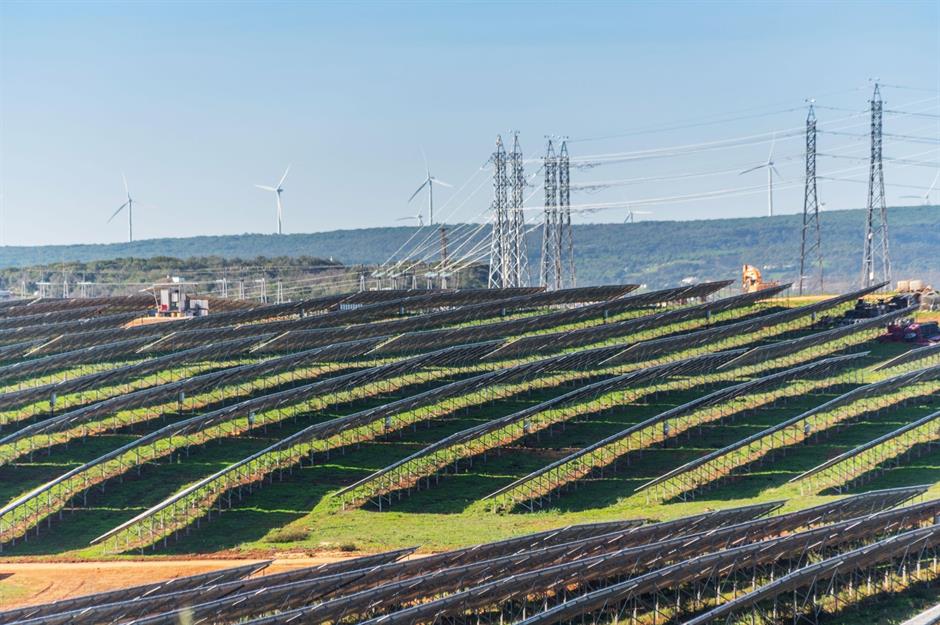
In 15th place is Portugal with a score of 66.6, beginning the list of countries rated as High performance by the CCPI. Internationally, it’s an ambitious player in climate negotiations, but the experts aren’t entirely satisfied with its efforts.
Portugal has introduced a new law to target a 55% reduction in emissions over the 2005 level by 2030. What's more, it’s brought forward its 2050 net zero date to 2045 and increased the installed capacity of renewables too. Some of its renewable energy is used for manufacturing hydrogen, however, which is seen as inefficient and not helpful in tackling climate change.
Meanwhile, the emissions reductions still fall short of what’s needed to reach the Paris Agreement goals and can only be brought into line by having an even earlier net zero date of 2040. In the meantime, Portugal should focus on the agriculture and transport sector in particular, aiming to reduce people’s use of private cars.
Chile: CCPI rating 67.3 (High)
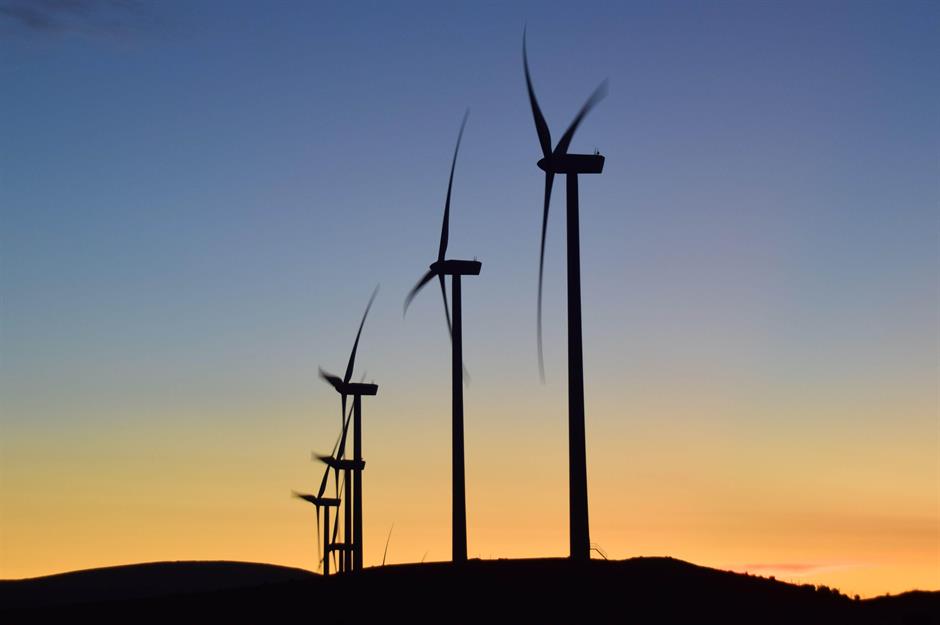
Chile lies in 12th place with another High rating and a score of 67.3 overall. It’s seen particularly strong performance in reducing greenhouse gas emissions and is currently working on a new plan for implementing the Paris accord.
The experts note that Chile has expanded its renewable energy use significantly. However, they caution that transmission problems inhibit its success. Gas and other fossil fuels continue to be subsidised too, while the forestry and agriculture sectors tend to focus on exports and would be better off paying more attention to conservation. Powerful interest groups in Chile can sometimes weaken the government’s plans.
Among the recommendations are that Chile should work to adapt to climate change, since it’s among the countries most vulnerable to its effects.
Sweden: CCPI rating 67.6 (High)
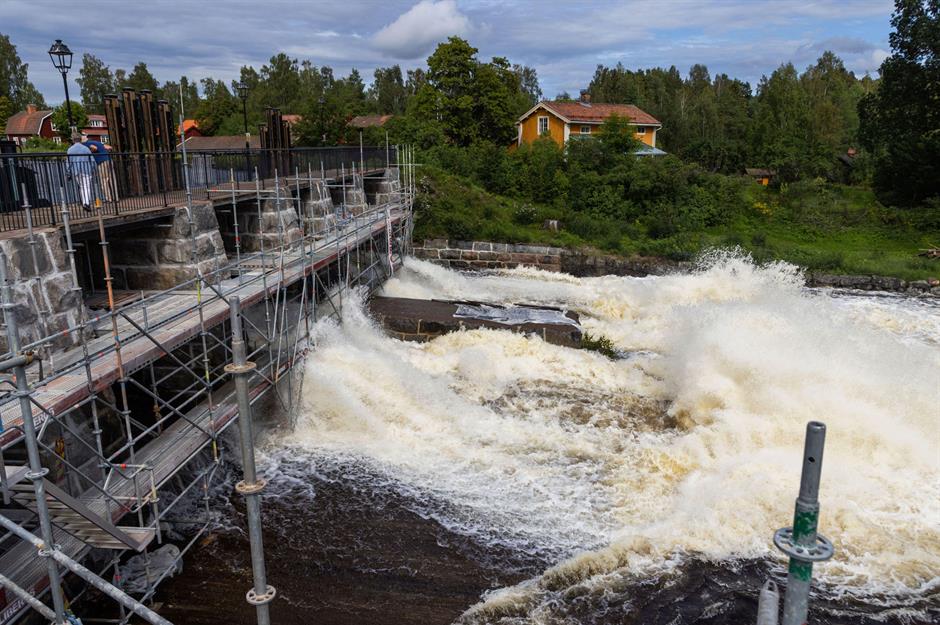
Sweden has impressed the CCPI experts, but they declare themselves worried about its future progress toward its Paris obligations. This year the country is in 11th place with a score of 67.6 and an overall High ranking. Its category rankings go from Very High in Renewable Energy to Very Low in Energy Use, though.
The experts are also concerned about the government reversing some policies, such as an aviation tax, subsidies for electric vehicles and investment in railways. They note the country’s shift from a target of 100% renewable energy to 100% fossil-free fuel, which includes nuclear power.
Sweden’s not on the net zero naughty step – yet. But it faces demands to ensure it doesn’t backtrack on its previous work.
Sponsored Content
India: CCPI rating 68.0 (High)
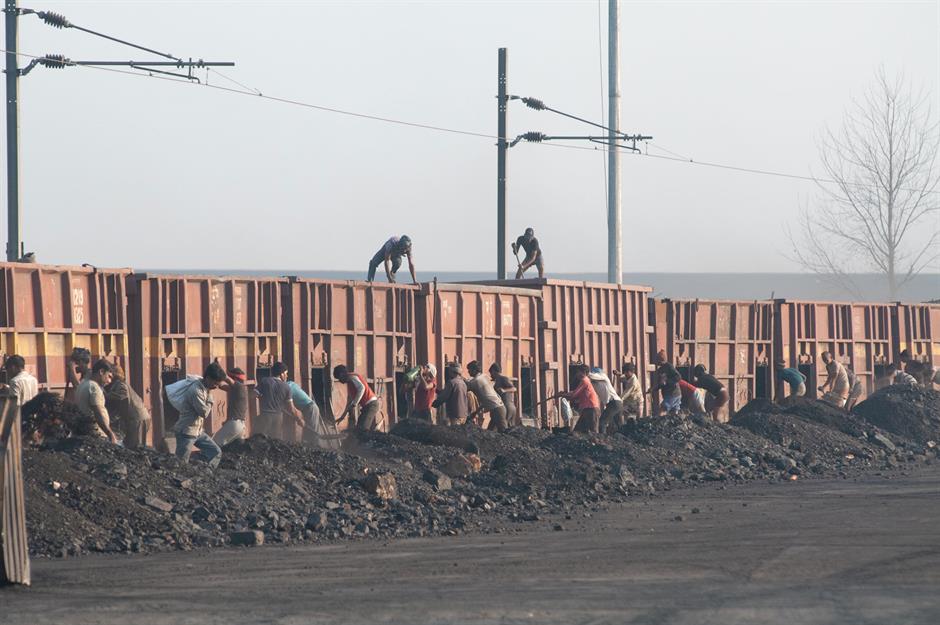
In 10th place is India – the most populous country on Earth and one whose per capita carbon dioxide emissions are small. It scores 68.0 and is in the High category.
India takes what the CCPI describes as a “growth-oriented approach” to climate change, which means it's keen to expand energy provision for its burgeoning economy. It has expanded renewables, but the experts want to see it move beyond a focus on electricity to include the transport, housing and industry sectors in its net zero plans.
So far, the country is heavily reliant on coal and intends to increase its production. That’s a serious blow to environmentalists and detracts from its other plaudits. The CCPI does, however, note that India’s sheer size means there are significant regional differences and exceptions to the national picture.
Norway: CCPI rating 68.2 (High)
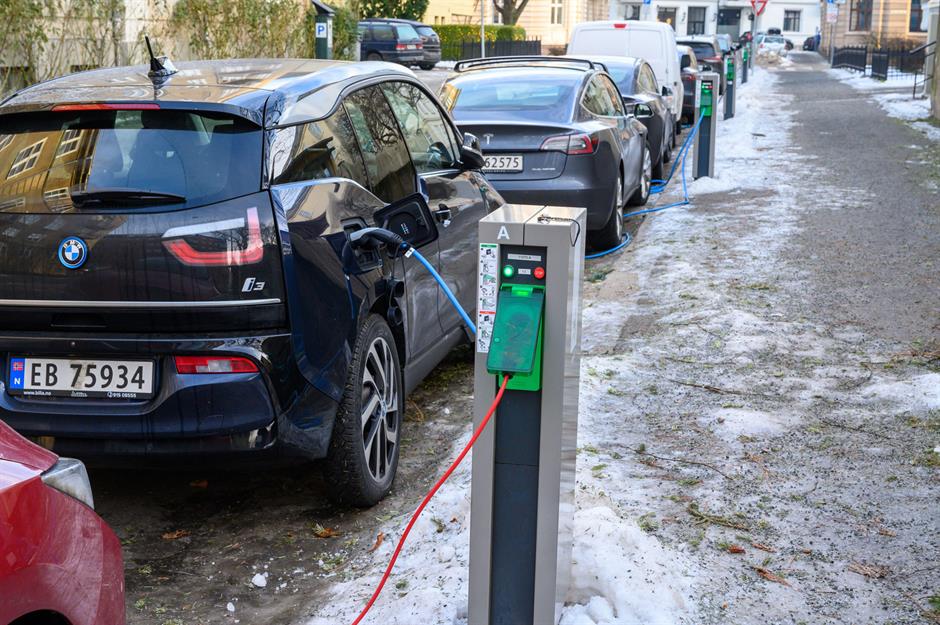
The CCPI experts have bumped Norway three slots up the rankings this year to ninth place with a score of 68.2 – but even then, they’re far from uncritical.
According to Norway's annual reporting of its progress towards net zero, it’s only halfway to its target of 55% emissions cut by 2030. And while it closed its last coal mine this year, it remains a big oil and gas exporter. The experts chide Norway for this and argue that it has a big carbon footprint overseas. It also imports goods and services – presumably from big carbon emitters.
Meanwhile, though Norway is described as a frontrunner in renewables, much of them come from hydropower and this has environmental impacts on waterways. Even the country's windfarms come in for criticism, as some of them are built on land belonging to the Indigenous Sami people.
Morocco: CCPI rating 68.3 (High)
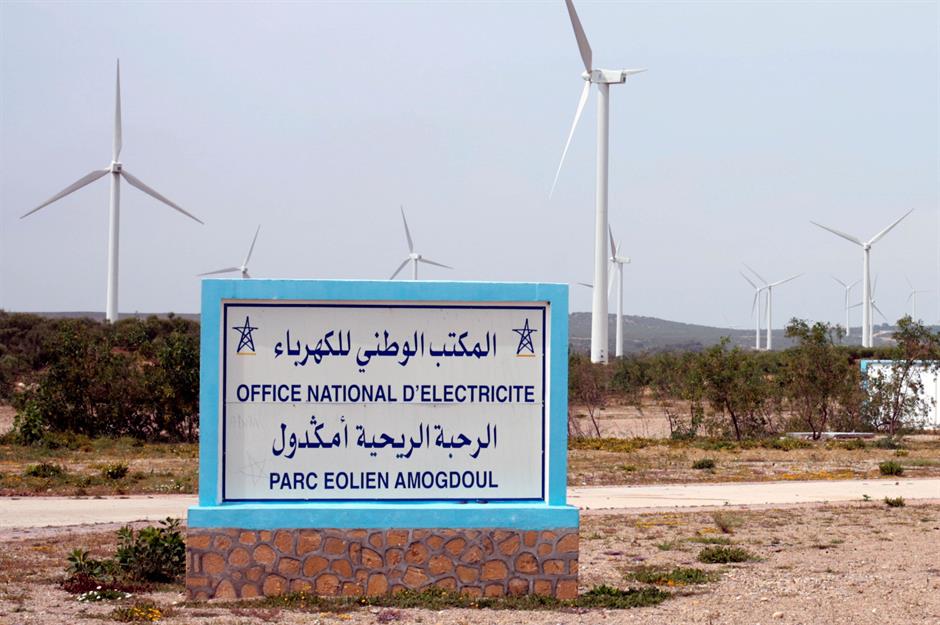
The CCPI praises Morocco as a regional leader in the effort to achieve greenhouse gas emissions targets. The country is in eighth place in the rankings with a 68.3 score and a High rating.
The North African nation is aiming for renewables to comprise 52% of its electricity by 2030 and has accordingly expanded its solar and wind capacity. However, it faces obstacles to future growth because the capital-intensive projects need to look overseas for funding.
Another problem is Morocco’s continued dependence on fossil fuels and plans to extract gas. The experts recommend introducing a carbon pricing system to make these energies more expensive. On a different note, new irrigation and seeding practices should be brought in to make farming more environmentally friendly.
Sponsored Content
Philippines: CCPI rating 68.4 (High)
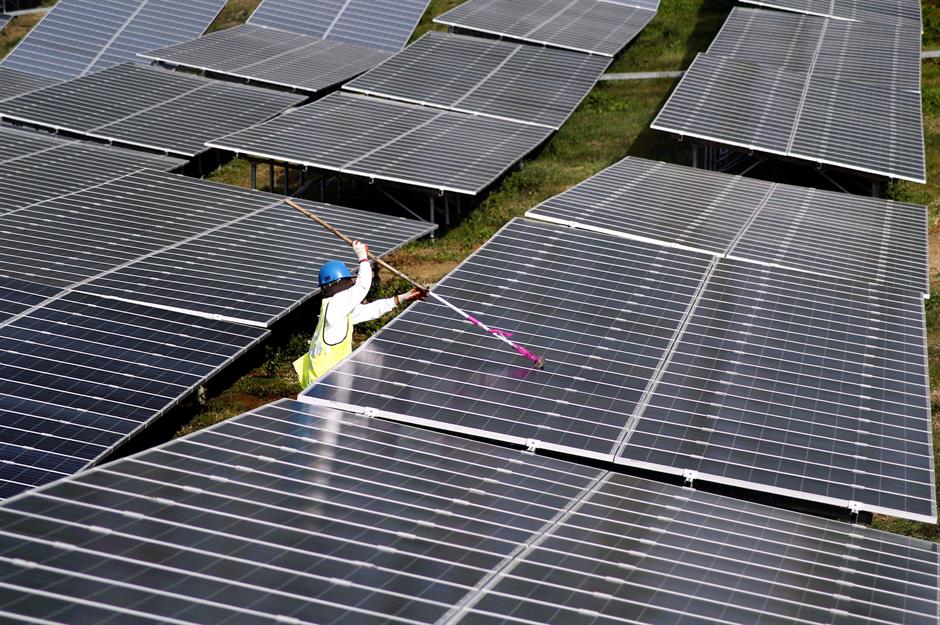
The Philippines manages an impressive number seven spot in the rankings, scoring 68.4 and an overall High rating. It published its plan for implementing the Paris accord this year, and the CCPI describes it as containing concrete policies for tackling climate change.
The Philippines also has an energy plan that aims to achieve 50% renewables by 2050, though the experts note that nuclear power will remain part of the mix. Meanwhile, some wind projects have been built in sensitive areas, which could threaten their biodiversity. One challenge to improving matters is the archipelago’s reliance on developed countries for funding.
As for fossil fuels: there’s a moratorium on coal projects since 2020, but existing proposals are exempt from it. And the Philippines has an expanding gas industry since it views gas as a transition fuel on the way to net zero. Finally, the experts express concern that rural poverty is often an impediment to sustainable practices in the agriculture sector. All in all, the Philippines is performing strongly, but finances are a potential problem.
UK: CCPI rating 69.3 (High)
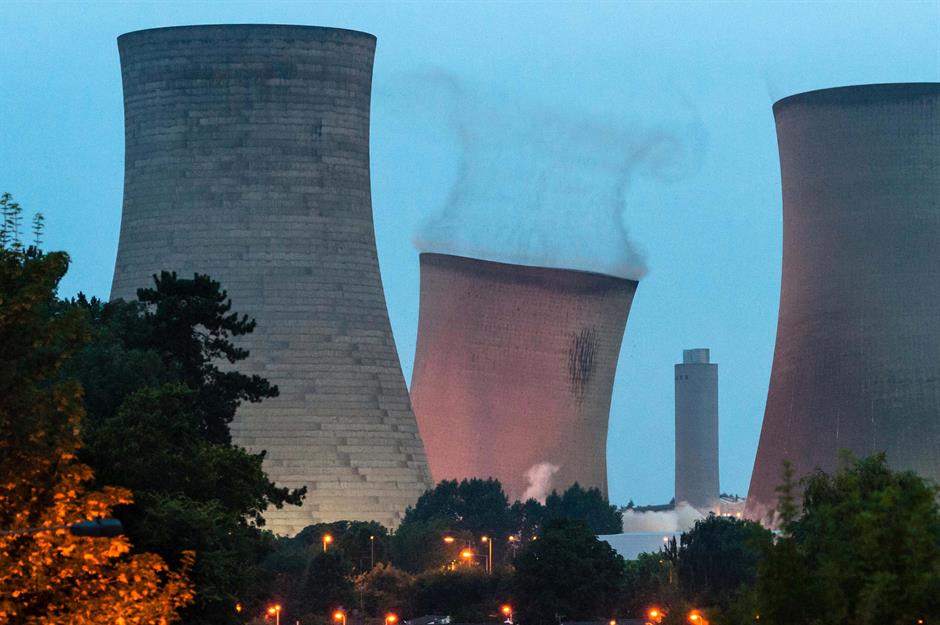
The UK has a newly-elected Labour government and the CCPI praises it for having ambitious climate change policies. A score of 69.3 and a High rating duly follow, and the UK gets a special mention as this year’s "winner" in the index.
Those policies include plans to decarbonise electricity generation by 2030 with a doubling of onshore wind farms, a quadrupling of those offshore, a ban on new petrol and diesel vehicles and the establishment of a new publicly-owned energy company. No new licences will be allowed for extracting North Sea oil and gas, and the last coal-fired power station has already closed down.
As ever, there’s more to do though. The CCPI experts call on Britain to set a date for closing down the North Sea oil industry completely and they note that targets for 2030 emissions reductions are not on track to be met. Making plans is one thing, it seems, but implementing them may be another.
Netherlands: CCPI rating 69.6 (High)

The Netherlands is another country with a new government, but in this case, it's a right-leaning coalition that is hostile to parts of the net zero agenda. Dutch farmers were angry with the previous government over measures to curtail agricultural emissions, staging mass protests and forming their own party to oppose them. That party, the BBB, is now part of the coalition.
The CCPI experts worry the new administration is weakening implementation of key climate goals. That said, the country will retain plans to reduce greenhouse gases by 49% by 2030 and 95% by 2050. It already has the highest installed capacity of solar power in Europe, and new housing is built without access to the gas network. Meanwhile, the nation's vast Groningen gas field has closed down.
For these and other reasons, the Netherlands scores 69.6 and a Hig” rating in the CCPI, which ranks it in fifth place in the race to secure the Paris Agreement’s targets.
Sponsored Content
Denmark: CCPI rating 78.4 (High)
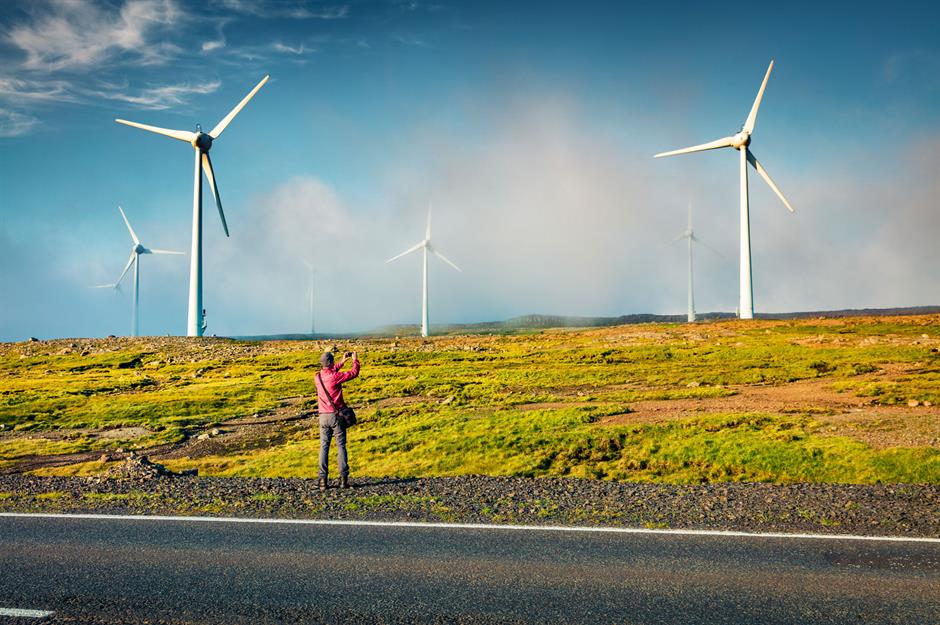
Like last year, the fourth spot is held by Denmark. It scores 78.4, which is significantly more than the next highest ranked, the Netherlands. Although it’s rated High overall, it achieves a Very High mark for Renewable Energy.
Denmark’s ambitions are high too. It plans to achieve net zero carbon emissions by 2045 and, by 2050, to be in negative territory with a 110% reduction compared to 1990 levels. It’s also introduced the world’s first tax on livestock emissions.
The experts commend Denmark for its proactive stance in the international arena, and say it acts as an example to poorer countries. They call upon it to keep up the pace. But if Denmark is the highest-scoring country, and it only makes number four in the rankings, what about the top three…?
The Top Three
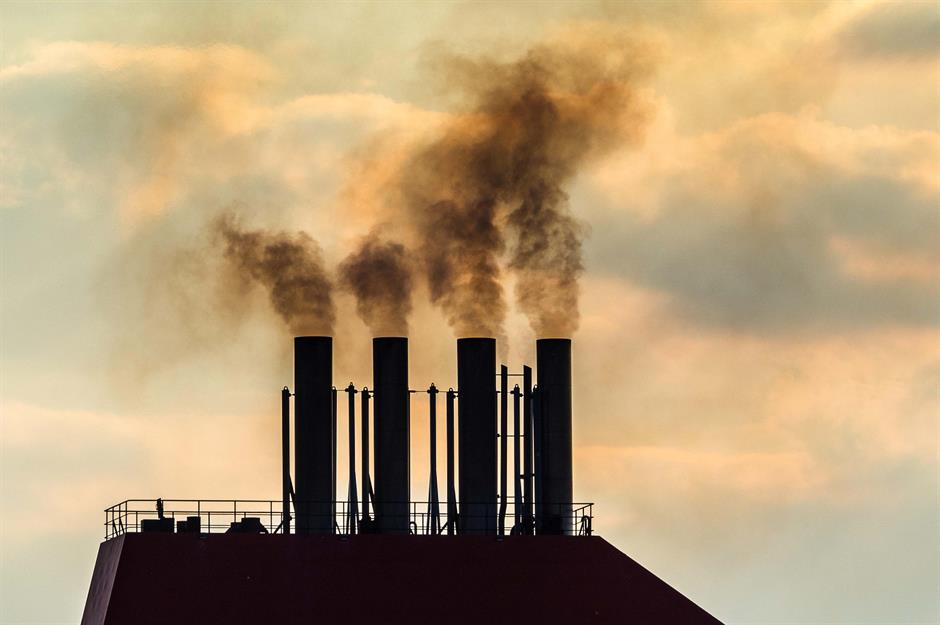
And the winners are… nobody.
The CCPI experts have decided that no country makes the highest Very High overall rating, and therefore the top three places should remain empty. It’s a performative gesture, meant to reinforce the world’s generally sluggish progress toward implementing the Paris Agreement’s targets.
The CCPI is not alone in expressing its frustration. Last year the first Global Stocktake, which collates each nation’s plans to reduce carbon dioxide emissions, found that time is running out, with the world not on track to fulfil its Paris obligations.
We’ll see if the coming years bring any improvements or if the demanding carbon reduction schedules that so many countries have signed up to fall by the wayside, enabling global warming – and its catastrophic effects – to continue. If so, expect the next CCPI to be even more disapproving.
Revealed: the staggering cost of extreme weather and the countries hit hardest
Comments
Be the first to comment
Do you want to comment on this article? You need to be signed in for this feature